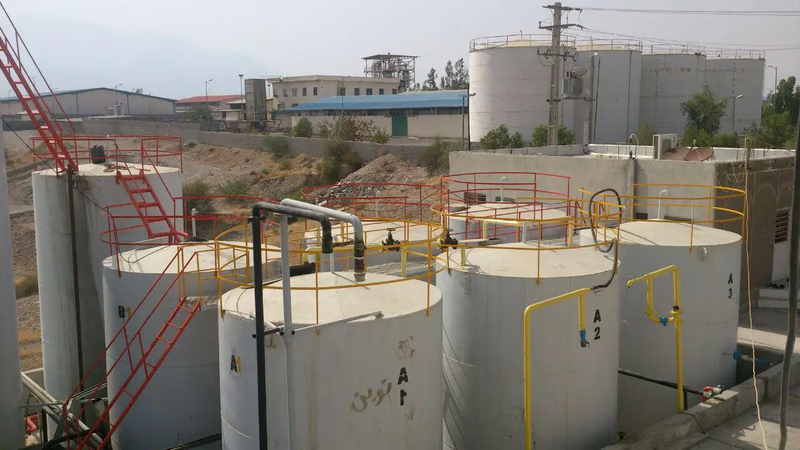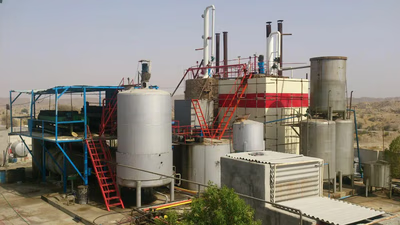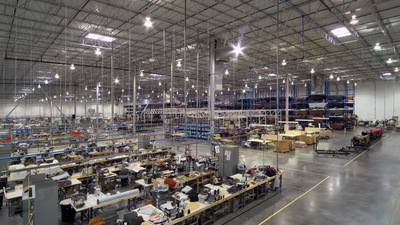
Factory leasing in Middle East trade platforms enhances B2B opportunities.
Selling or leasing a factory to a foreign company can help artisans reduce the risks associated with operating a factory. These risks may include issues related to production, marketing, distribution, employment, and local laws and regulations. By handing over the factory to a foreign company, the industrialists may be able to benefit from the expertise and experience of that company in managing and operating the factory and reduce the related risks. Governments and financial institutions can provide special financial and tax facilities to foreign companies to attract and encourage them to invest in the country. Industrialists may take advantage of these facilities and financial and tax discounts by selling or renting a factory.
If the foreign company purchasing the plant is not financially successful or faces financial difficulties, it may affect their ability to operate and develop the plant. In this case, industrialists should do the necessary research and investigations on the financial support and financial performance of the foreign company to ensure its stability and financial strength. Political developments and laws and regulations of the destination country can have a direct impact on the activity of the factory purchased by the foreign company. Sudden changes in financial, commercial, labor, energy, environmental and other fields policies may affect the factory and affect the ability to produce and operate.
By handing over the factory to the foreign company, the artisans may gain access to new and more advanced technologies and processes. But at the same time, these technologies may reach the destination country through the purchase of the factory by the foreign company and thus affect the competition of the domestic market. The foreign buyer company may face financial problems or may not have the necessary financial ability to operate and develop the factory. This can lead to non-payment of rent or sales installments, payment delays or even factory shutdown. Before making the transaction, you must ensure the financial support and ability to pay the foreign buyer.
Cooperation with foreign buyers may come with cultural and language challenges. Cultural differences, management styles and language differences can lead to a lack of correct understanding of the needs and expectations of the other party and, as a result, create problems in communication and cooperation. Establishing a factory requires high capital and strong financial resources. Industrialists may be inclined to sell or lease their factories to tap foreign financing or attract foreign investment. This could be due to financial constraints, lack of access to sufficient financial resources, or inability to maintain capital to build and operate a plant.
Artisans may focus on their core business activities and avoid the responsibilities and costs associated with running a factory. By selling or leasing the factory, they can focus more on developing and improving their core business. Selling a factory to a foreign company can enable artisans to access more advanced technology and know-how. These technologies and technical knowledge can improve the quality and efficiency of production and thus increase the competitiveness of the business.
Industrialists may decide to exploit existing infrastructure in other countries. These infrastructures can include transportation networks, industrial parks, free zones, and energy and water infrastructure. By selling or leasing a factory, industrialists can take advantage of existing infrastructure in other countries and reduce the cost and time required to build new infrastructure.
The decision of the industrialists to sell or rent the factory to foreigners may be due to financial constraints, risk reduction, focus on the core of the main business, access to technology and know-how, use of existing infrastructure, and financial and tax facilities. Renting and selling workshops and factories to foreign buyers may involve some risks. Handing over a factory to a foreign company may cause security risks. This includes access to technologies, strategies, processes and confidential information, and even infringement of intellectual property rights. If there is sensitive information in the factory, manufacturers need to create the necessary guarantees to keep their information and technologies safe from foreign buyers.
-

Selling or leasing factories to foreign companies can mitigate risks for artisans, including production and regulatory challenges. By transferring ownership, industrialists can leverage the expertise of foreign firms, potentially benefiting from financial incentives offered by governments to attract foreign investment. However, due diligence is crucial; assessing the financial stability of the foreign buyer is essential to avoid issues like non-payment or operational shutdowns. Political and regulatory changes in the buyer"s country can also impact factory operations. While access to advanced technologies and processes may enhance production efficiency, it could also intensify domestic competition. Cultural and language barriers may complicate communication between local artisans and foreign buyers, necessitating clear agreements. Financial constraints often drive industrialists to consider selling or leasing their factories, allowing them to focus on core business activities while reducing operational burdens. Additionally, utilizing existing infrastructure in other countries can lower costs and expedite operations.
Despite these advantages, risks such as security concerns over proprietary information must be addressed through proper safeguards. "
-

Industrial real estate transactions involving foreign nationals necessitate a thorough understanding of property laws, tax regulations, and market conditions in both countries. Consulting local experts, such as real estate lawyers, is crucial for navigating the complexities of international transactions. Each country may impose specific restrictions on foreign ownership of industrial properties, making it essential to verify the legality and enforceability of contracts. Accurate translation of documents is vital when dealing with multiple languages to ensure clarity in agreements. Financial considerations, including local taxes and maintenance costs, must be carefully evaluated before proceeding with a transaction. Risk management plays a significant role; thus, conducting detailed inspections and technical reviews of properties is recommended to identify potential issues. Negotiating terms and ensuring all contractual details are correct is critical for successful transactions. Additionally, understanding currency restrictions and settlement methods between countries can prevent complications during the transaction process.
For selling or renting industrial properties, determining the right price through expert appraisals and adhering to lease agreements are necessary steps. Effective advertising strategies can facilitate quicker sales while maintaining caution regarding personal and financial information is paramount throughout the process. Engaging experienced advisors can provide valuable insights tailored to specific transaction conditions.
-

Industrial zones in the Middle East and West Asia are increasingly appealing to foreign investors due to several key factors. The type of industry present significantly influences investment attraction, with sectors that can compete globally being more desirable. A large and growing market is crucial, as it draws investors seeking robust opportunities. Strong export markets further enhance this appeal. Infrastructure plays a vital role; regions with reliable electricity, water supply, transportation networks, and communication systems create an inviting environment for investment. Additionally, clear laws and regulations regarding foreign investment bolster investor confidence. Countries like the UAE, Saudi Arabia, Qatar, Oman, Turkey, and Iraq showcase some of the best industrial areas for foreign investment. The UAE"s cities of Dubai and Abu Dhabi stand out for their excellent infrastructure and legal frameworks.
Saudi Arabia"s major cities offer significant domestic market potential. Qatar"s dynamic industrial sector is exemplified by Doha and Ras Laffan Industrial Zone. Oman’s Sahab Industrial Zone is recognized for its stability and investment opportunities. Turkey benefits from a large domestic market and strategic location, while Iraq"s rich resources make its industrial centers attractive as well. To maximize foreign investment potential in these regions, it is essential to focus on industry type, market size, infrastructure quality, regulatory clarity, and overall growth prospects.
-

Foreign investors are increasingly drawn to various types of industrial real estate, including factories, warehouses, and logistics facilities. Direct investment options allow them to purchase or develop properties, while joint ventures with local partners offer shared management opportunities. Attractive investment areas include shopping centers, ports, and office buildings. Additionally, sectors such as healthcare, technology, and energy present lucrative prospects for foreign capital. Industrial properties related to mineral resources and food processing also attract interest. Free trade zones and industrial towns provide unique advantages for investors seeking favorable business environments. Investment funds and loans further facilitate foreign participation in the industrial real estate market.




